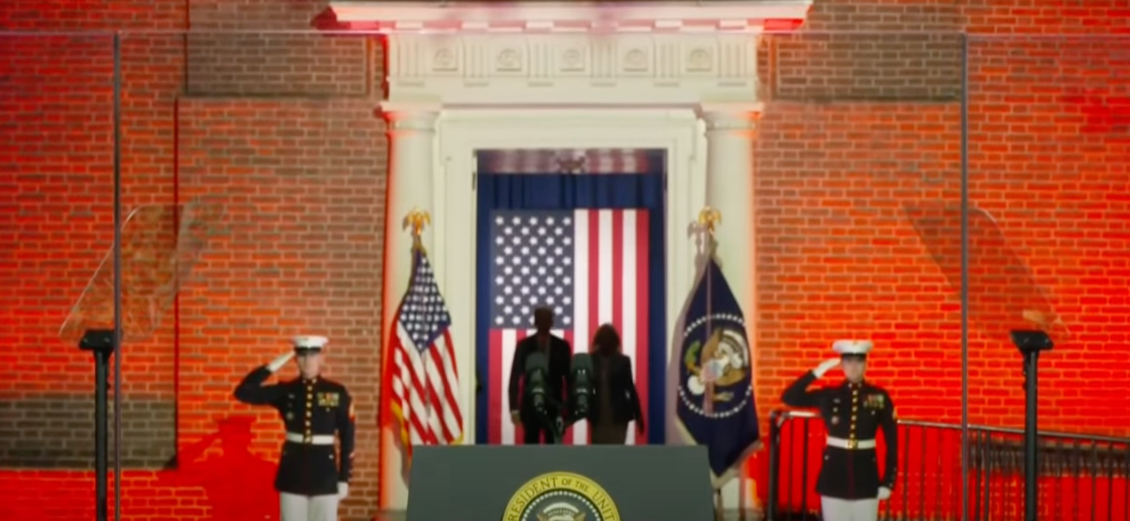Us and Them – 091322
This is a newsletter by Christian Sager that comes out every other Tuesday. In it I attempt to make sense of the chaos in our world. I try to sort that information along the model of Maslow's Hierarchy of Needs. This issue I write about wildfire smoke, the “Continued Battle for the Soul of the Nation,” Rose City Comic Con, Shellac, and Emily St. James’ article “How Twitter Can Ruin a Life”
Physiological
As I’m writing this the air’s starting to clear in Portland. We’ve had wildfires all summer in Oregon, but between the Cedar Creek Fire south of us and high winds over the weekend it got smoky and hazy again. Nothing as bad as the hell week of smoke in 2020, but here are a few examples of what we saw on Saturday.
Last night's moonrise through the St. Johns Bridge in Portland, Oregon.
— Andrew Reynolds (@LavishedOnUs) September 10, 2022
Mt. Hood barely visible through the smoke.#Portland #wildfire pic.twitter.com/86YKQSHXQ9
If you've ever been curious about what the #fullmoon looks like during #wildfire season, this is it. Beautiful but terrifying. #TwitterNatureCommunity #Oregon pic.twitter.com/7nuUcUwYPd
— 📷 jennifer jones 📷 (@jnj2day) September 10, 2022
Sunset this evening. Not a cloud in the sky, the colors of the sun enhanced by the smoke from wildfires present in the sky. It was solid orange in person. #sunset #wildfires #sun #oregon #oregonwildfires pic.twitter.com/YkbzCJ4mXD
— Mike (@mikebro65302392) September 11, 2022
Security
I studied rhetorical criticism in graduate school and a consequence of that is my stubborn insistence on watching political speeches, despite my distaste for most of the speakers. I’ll admit that the last few years have taken their toll on this habit, but when Joe Biden gave his speech on the “Continued Battle for the Soul of the Nation” on September 1, I couldn’t help but be drawn into it.
I’m sure there are many rhetoric scholars who are working on a detailed analysis of this speech within the context of presidential public speaking. I’m just going to give you my surface level impressions of what I found to be a profoundly odd presentation.
When the press releases started hitting the news streams hours beforehand, my first thought was that there might be an active threat the White House was going to warn us about. I thought: Maybe they had intel on a planned act of violence? But after absorbing the text, I think it was more likely a strategy to release something before Labor Day weekend, so people would start thinking early about their congressional elections. Given the tone he used, this seems both irresponsible and dangerous to me.

Let’s start with a few notes about the context. The red lit background was an ominous choice, especially considering the nation’s political associations with that color. It looked like Emperor Palpatine was about to denounce the galactic republic, flanked by stormtroopers. I wasn’t aware of the “Dark Brandon” meme until after this speech, but I doubt it impacted the lighting choice. Still, it provided an ambience of deathly seriousness.
Presidents often try to stave off discourse about their age and its impact on their decision making abilities. This was not that. Biden’s entrance didn’t match the grim tone of the speech. He seemed to require his wife’s assistance to even get to the podium. When they arrived, he looked genuinely confused, like an Oscar winner who doesn’t know how to leave the stage. His voice was hoarse; some speculated the result of his recent case of COVID.
Interestingly, the White House chose to keep all the imperfections of Biden’s verbal performance in their published transcript. He’s known for gaffes, but that’s not usually something left in the written record. Centuries from now, archival researchers will be able to note every time he stammered or lost track. Their impression will be that this was a man who could not stick to the script.
All of the above are unusual choices for a speech with the goal of redefining what it means to be “American.” So just on context alone, we’re off to a shaky start.
Let’s drill down into what he actually said for a moment. This was a constitutive speech, where a speaker tries to create a collective identity that their audience will embrace, giving them a shared sense of beliefs and community. In this speech it’s his main attempt at connecting with us emotionally, by asking us to “come together” and “defend democracy.”
Biden defined “Americans” (as opposed to “MAGA Republicans”) as people who value equality and democracy, going so far as to say we have “burning inside each of us the flame of liberty” because that flame was lit by the Civil War, Suffrage, the Great Depression, world wars, and civil rights. The poetic hyperbole was a bit much, too over the top, indicating how desperate he was to drive this point home. Even the most liberation-minded of my peers and colleagues don’t identify with his definition of what it means to be American. He knows that, but he is going to pretend anyway.
He reiterated that our present isn’t “normal,” but that we’re “not bystanders” in its abnormality. This implied that we should take action against the Others he defines here. He never says what that action is — presumably voting — but to me it felt dangerously close to the preamble for a civil war. He paints “them” like Tolkien painted orcs: threatening, angry, chaotic, “living in a shadow of lies.” He even called them out for having bad manners when a heckler could be heard off in the distance.
Let me be clear, I don’t disagree with this portrait of our fellow citizens; it has largely been my experience with Trump-voters as well. But this speech bordered on dehumanizing them. I truly wonder if that's the best strategy for solving this problem.
Meanwhile, he defined the rest of us as universally honest, decent, respectful, hopeful and patriotic. Again, the world’s more complex than that. I don't even think I'd describe myself that way. But in his picture, our victory means America has an “unlimited future” as the "greatest nation on Earth." Although he then caps off our future at 200 years from now – in 2222! Even Joey the Champ knows that climate change won’t give us much longer than that. Apparently the American experiment is going to end when we all drown in the climate ramifications of our technological emissions.
Interestingly, there wasn’t a lot of traditional character reference in this speech. The most was when he summoned the “sacred ground” of the location he spoke in, confusing religiosity with civics. There was also an awkward attempt to set himself up as a plain old Joe by speaking to us as “plainly as I can,” which came across as vaguely insulting. As if we couldn’t possibly understand him if he spoke about complexities through ornate language. Another sign of the growing anti-intellectualism in American life.
Following that trend, there was even less logic presented. Constitutive rhetoric tends to do that, presuming that belief and identity are more important than reason. But nowhere did he provide evidence for his argument that there are two different types of Americans, and one must defend democracy from the other.
All of this made me feel even less secure than I did before he spoke. I may believe in the progressive values he espouses, but this speech was designed to further drive the wedge between “us” and “them,” like we’re inevitably barreling toward a civil war. Biden’s past the point of managing this conflict through other strategies. On this day he chose competition over anything more nuanced. But I can’t help but wonder what that will mean when it leads us to even more mass shootings, bombings, or incursions against government employees and the buildings they work in.
Belonging
I don't know if I even like doing this anymore. But it was good to break out my books and remind myself how much I've accomplished. pic.twitter.com/mot2XVql8E
— Christian Sager (@christiansager) September 9, 2022
At the last minute Rose City Comic Con reached out to me and asked if I wanted to roll over my table from 2020 to their show this last weekend. I could have sworn they told me this wouldn’t be allowed last year, but I suspect they didn’t have enough creators to fill their tables and made some exceptions.
For the first time in three years I broke out my convention gear and merchandise, packing it all into my rolling luggage. It felt good to take account of all the books I’ve published, each an achievement I accomplished. Setting up the table was similar; it’s been awhile since I’ve seen all my work displayed together like that. Kelly mentioned we should create a shelf at home for all my publications and that’s probably a good idea.
I took it slow. This is my first convention back since COVID, so I only did 3 hours a day at the table. Not being stuck in that space for 8-10 hours a day made a huge difference for my mood and it didn’t seem to affect my sales any. For a long time my peers and I have strictly stuck by the table, desperate not to miss any potential readers.
But I’ve changed. I value my well-being more now than any success that might come from being in the right place at the right time. And to be honest, I’m not sure I even belong at comic book conventions anymore. At least not the big, mainstream ones like Rose City. I should probably focus on horror and small press exhibitions.
As I sat behind that table this weekend I was acutely aware of how little I felt like I belonged to that community. Fifteen years ago I was thrilled to be in a space like that; it felt like I'd found my people. But I’ve changed and with the rise of geek culture into mainstream commerce it’s become obvious that it’s not really my thing anymore.
But let me tell you about some places where I did feel a sense of belonging in the last two weeks!
The Fixin’ To is a dive bar rock club in downtown St. Johns, not far from my house. One afternoon I packed up and went down there to work for the rest of the day. I felt right at home at their patio tables, eating Frito pie and hammering on the keyboard. It may become my new "office" when I'm not downtown.
Brutus have a new album coming out and just released a music video for the song “Victoria.” The first time I watched it I felt like I was on the verge of tears. Maybe it was seeing people of all ages out in public spaces, enjoying their community. Maybe it was the lyrics, about getting older and trying to find a better way to be an adult than our predecessors. It could have been Stefanie Mannaerts soaring vocals. I found it incredibly moving.
And then there’s Shellac.
When I was in high school in 1994 I’d just moved back to the United States from Singapore. I was beginning to get into punk rock and listened avidly to the local college radio station, WUNH. So I kept blank cassette tapes next to my stereo in case I could record anything cool I came across there.
One night a WUNH deejay named Rich Ladew did a block dedicated to the music of Steve Albini. He composed a mix of Big Black, Rapeman, Pegboy and Shellac songs that I was utterly fascinated by. So I popped in a cassette and recorded an hour of it. I’d never heard anything like it. Back then that was the only way to hear esoteric, out-of-print songs like “Killers,” “Wingwalker,” or “Billiardspielerlied.” I kept that cassette for years afterward, until I couldn’t play it anymore, because I no longer had a walkman or a cassette deck in my car.
Ladew and I became friends when I arrived at college myself. Eventually we saw Shellac together, at least twice I can recall. I recently heard his eldest daughter is now going to college herself. I thought about Rich and that tape when I saw Shellac again — almost 30 years later — at Mississippi Studios last week.
Everyone talks about how aggressive, controversial and meticulous Shellac are. Legends and urban myths swirl around Albini, making him into this larger than life figure for music nerds. But what we often forget about is how much fun Shellac is. Whether it’s Todd Trainer banging backwards on the tall cymbal mounted behind him, Bob Weston snarkily taking Q&A from the audience, or Steve screaming “Look at me! Look at me! I’m a plane!” while balancing on one leg with his arms outstretched, the members of this band prioritize playfulness above any of that other arcana.
It’s right there in the lyrics to “Killers,” but it took me well into adulthood until I got it.
“Defenders of fun
They have a sense of humor
And when they shoot you they-
They call you names
I side with the defenders
(The defenders of fun)”
That evening, Steve told the crowd that he felt sorry for anyone new trying to experience Shellac, because most of their audience is comprised of people who he described as “punishers.” These are the killers of fun, defined as “someone who talks excessively about subject matter that no one has any interest in, or has talked about it to the point where no one cares any more.” I’ll shut up on this point as I can sense I’m dangerously close to punisher territory.
Shannon Wright opened for them that night and while it was my first exposure to her music, I suspect she too is a Defender of Fun. She strutted around the stage and just seemed to have a blast performing for us. I’ll be following her from now on with interest.
Esteem
I missed the controversy last year around Isabel Fall’s story “I Sexually Identify as an Attack Helicopter.” But I noticed Emily St. James’ follow up article “How Twitter Can Ruin a Life” was nominated for a Hugo award and followed the rabbit hole down.
St. James' piece is so well done I’m not going to spend too much time here recapping it. I’ll just say that its theme of “progressives eating their own” really resonated with me. Both in my personal and professional life I see this happening too often, over and over again.
Two paragraphs in particularly rang true, especially in light of starting up this newsletter again. First:
“For instance, if you’re a science fiction fan, you might follow a big-name author or critic in the field, and since they’re likely a bigger expert on the topic than you are, you’ll probably regard them as such. But Twitter is a platform that rewards divisive opinions, which are more likely to drive engagement (hearts, retweets, and the like). So, many influencers with the biggest reach on Twitter are also people whose core identity is expressing divisive opinions.”
And also:
“‘What’s on Twitter extends far beyond Twitter, because people make Twitter relevant to the rest of the world. So in a sense, they’re reproducing the chaos and social structures of Twitter, by bringing them into the rest of the world,’ Lo says. ‘It ends up having outsize influence, because the people who are on Twitter perceive Twitter as being bigger and more representative [of the world] than it really is.’”
Self-Fulfillment
I started act two of my sci-fi horror novella. A friend and I have been trading chapters of the books we’re working on and it’s been really satisfying to share and talk craft with another creator. I'm going to keep plugging along until this book is finished, but I'm hoping I can share it in some format with you all in 2023.
Resilient Gratitude
- Fresh autumn air breezing through the late summer heat.
- The Best of Milligan & McCarthy (they don’t make comics like this anymore)
- My dog Winn. He’s always there for me, no matter what.


